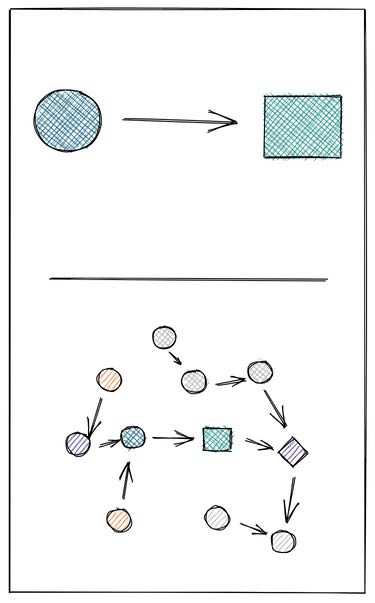Learning
Behavior First, Theory Second
Behavior and Theory are two heuristics that can help you in deciding between courses and teachers.

Selecting the right course or teacher for any given topic you might be interested in can feel daunting. Especially when you have effectively unlimited choices available in the form of online courses, Zoom classes, individual coaching, and books.
I've taken lots of classes and courses in my life, and through some recent conversations I've come to think that there are two heuristics that can help a lot in making this choice:
Does the course focus on Behavior First, Theory Second?
Do you trust the teacher fully?
Behavior First, Theory Second
When you're choosing a course, or program, but also when considering an individual lesson, check what is covered first: behavior and skill, or theory and history of the field?
In my experience, the vast majority of material out there starts with theory or some historical context – both of which are useless in the beginning. Am I saying you should never learn theory or historical context? Absolutely not. But if you're starting out, telling you about the history of the field does nothing for you, despite what many teachers claim or think.
The reason I most often hear for starting this way is to provide a framework, hooks to "hang other knowledge onto", to make remembering easier for the student. Providing these hooks is indeed important, but theory or history are inadequate in providing this context unless you have fairly well developed skills in a field already.
The reason theory and history are inadequate is that it's always easier to discuss something concrete than something abstract. The best example for this is how Zed Shaw teaches total beginners how to program in his "Learn The Hard Way" series. When I worked through his book on Python (a programming language) a decade ago, that wasn't my first attempt at learning programming. I had tried to learn programming with different programming languages before, in high-school classes and through books on my own. And it never stuck. Why was that? Because all these books and courses started with some abstract discussions of concepts I had no concrete experience with. Things always got confusing really quickly, and then I'd give up.
With Zed's courses, it worked totally differently. His setup was the same for each lesson:
- Do this
- Here's what you should see
- Explanation on what just happened and why
That was the key difference. No abstract discussions of concepts I had no experience with, but instead teaching a behavior (do X), a way to check whether the behavior produced the correct result, and then the discussion on what this behavior is good for and the context for it.
Since then, every course I've taken that follows this logic has produced vastly better results for me than the "standard" way. Therefore, check whether a course goes from behavior to theory or the reverse – choose the ones that prioritize behavior.
However, there's an important other heuristic to take into account: your trust in the teacher.
Trusted Teachers Only
When a course starts with theory or historic context, it allows the teacher to demonstrate their knowledge of the field and build a foundation of "authority". Which is – I think – one of the reasons teachers start their courses and lessons that way.
I've observed in myself that I question a teachers' approach more when I don't fully trust them – even if they're doing a thing I think is better and are teaching behavior first, theory second.
Of course, questioning the approach of a teacher isn't super conducive for learning and also contributes to dropping out of a class. How to resolve the tension between choosing behavior-first courses, where a teacher can't build trust though extensive theory-swaggering, and trusting the teacher?
By only taking courses where I trust the teacher blindly, or at least almost blindly.
Finding a teacher you trust that much, or can develop that trust in, is much easier than it sounds. I've followed some teachers for months or even years, on social media and their email lists, before buying anything from them. Sometimes it went much quicker, if they demonstrated their knowledge convincingly.
The point is – never feel rushed into buying a course where you don't fully trust the teacher to guide you through the process without questioning it at every step or new lesson. That includes my own courses, naturally.
Instead, spend time in a teachers orbit, observe how they interact with students, present their material and whether they seem to know what they are talking about.
With these two heuristics alone you can eliminate a large number of courses from the list of choices. So whenever you're checking out a course, go through a quick checklist: are they teaching behavior first, theory second? And do you trust them to a point where you won't question every choice and can instead trust their process to deliver what you want?
Related Topics
Join the Cortex Futura Newsletter
Subscribe below to receive free weekly emails with my best new content, or follow me on Twitter or YouTube.
Join and receive my best ideas on learning, decision making, and Roam Research
